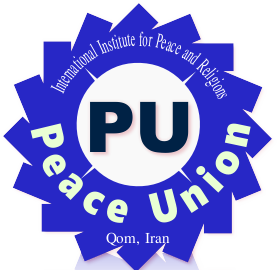UNESCO Projects
EU-UNESCO Project: Protecting Cultural Heritage and Diversity in Complex Emergencies for Stability and Peace
PU affiliated with IIPR is in a concise endeavor to facilitate the global peacebuilding projects mainly planned and organized by UNESCO.
While UNESCO has traditionally not been part of rapid humanitarian response, demands from Member States require for UNESCO to develop modalities – operationally, administratively and legally – for the rapid deployment of experts to crisis and transitional situations where culture is at risk or where areas that were previously inaccessible become available for responsive action. This modality is a key requirement for the culture sector to be fully taken into account in complex emergency situations and to be able to act where and when needed.
The Project complements and further reinforces ongoing and planned actions by UNESCO. At the central level, UNESCO set up a Heritage Emergency Fund (HEF) in 2015, which operates as a flexible multi-donor modality to finance emergency operations – in particular rapid response operations. In addition to the HEF, UNESCO is setting up a rapid response mechanism to dispatch experts to provide urgent technical assistance, advisory services, and capacity-building for the safeguarding of culture in complex emergencies.
In the framework of the project, the following activities will be implemented at the Global level.
Deployment of rapid fact-finding or advisory missions
This activity will allow for the deployment of rapid fact finding or advisory missions to Iraq, Libya, Syria, Yemen or other relevant countries and identification of emergency interventions to newly accessible locations. The primary aim of such missions is to assess the situation, determine needs and – when required – implement first aid measures to stabilize the situation until further action can be undertaken.
Improvement of UNESCO’s rapid response capacity for the protection and safeguarding of culture in emergency situations
The deployment of the rapid fact-finding or advisory missions will be used to evaluate and improve the existing rapid response capacities of UNESCO. This will include setting up a roster of experts for rapid response to crisis situations, comprised of national experts from contributing countries as well as from civil society organizations, and developing partnerships and agreements for their mobilization and deployment on the ground.
Related Events
 UNESCO Director General Audrey Azoulay meets High Representative Vice-President Federica Mogherini in Brussels
UNESCO Director General Audrey Azoulay meets High Representative Vice-President Federica Mogherini in Brussels Launch of the EYCH in Belgium
Launch of the EYCH in Belgium European Civil Protection Forum Panel Discussion
European Civil Protection Forum Panel Discussion High Level Event Culture and Education for All Building the skills for more resilient societies
High Level Event Culture and Education for All Building the skills for more resilient societies Syrian Bridal Folk Songs Concert
Syrian Bridal Folk Songs Concert Brussels conference on “Supporting the future of Syria and the region”
Brussels conference on “Supporting the future of Syria and the region” EYCH 2018 International Perspectives Forum
EYCH 2018 International Perspectives Forum UNESCO and EEAS join forces to protect cultural heritage at risk in crisis situations
UNESCO and EEAS join forces to protect cultural heritage at risk in crisis situations Third International Conference on the Victims of Ethnic and Religious Violence in the Middle East
Third International Conference on the Victims of Ethnic and Religious Violence in the Middle East UNESCO at the European Development Days 2018
UNESCO at the European Development Days 2018 EDD’s Debate Creativity and Cultural Heritage through Women’s lens
EDD’s Debate Creativity and Cultural Heritage through Women’s lens Workshop on Protecting Iraqi Culturla Heritage and Fighting Terrorism
Workshop on Protecting Iraqi Culturla Heritage and Fighting Terrorism European Cultural Heritage Summit in Berlin
European Cultural Heritage Summit in Berlin High-Level Conference Cultural Heritage in Europe linking past and future
High-Level Conference Cultural Heritage in Europe linking past and future Evening Syrian Living Heritage
Evening Syrian Living Heritage Signing of initiative Cash for Work Promoting Livelihood Opportunities for Urban Youth in Yemen
Signing of initiative Cash for Work Promoting Livelihood Opportunities for Urban Youth in Yemen UNESCO training on photogrammetry and 3D scanning of the Old City of Sana’a
UNESCO training on photogrammetry and 3D scanning of the Old City of Sana’a Workshop for heritage professional in Libya on first aid to cultural heritage
Workshop for heritage professional in Libya on first aid to cultural heritage A survey on damage assessment in historic Yemeni urban fabrics finalized
A survey on damage assessment in historic Yemeni urban fabrics finalized
